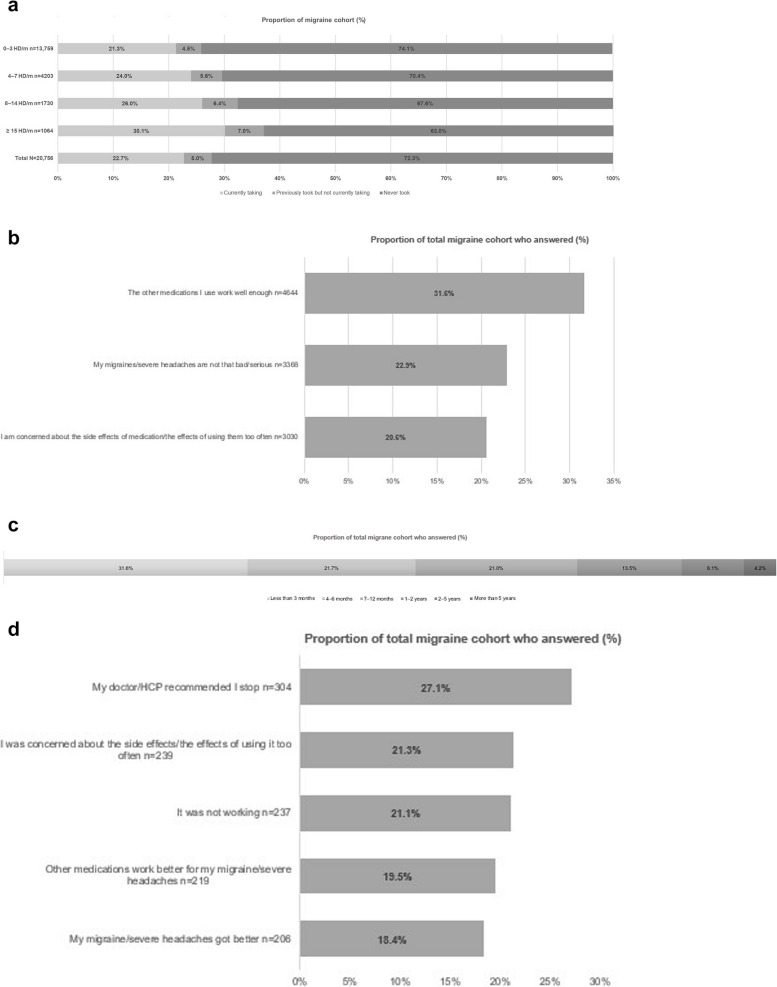Fig. 4.
Preventive treatment patterns in the OVERCOME (EU) migraine cohort. a Experience with preventive medicationa. b Top three reasons for never using preventive medicationb (n = 14,706). c Length of treatment of most recent preventive medicationc (excluding CGRP-mAbs; n = 1121). d Top five reasons for stopping preventive medicationd (excluding CGRP-mAbs; n = 1121). aQuestion regarding experience with preventive medication was asked to all survey respondents. Preventive medication includes oral and injectable (monoclonal antibodies/botox) medications. bQuestion regarding reasons for never using preventive medication was asked to respondents who had not been prescribed blood pressure/heart, antiseizure, antidepressant, or injectable (monoclonal antibodies/botox) medications ever for any reason OR had used such medication(s) for a health condition other than migraine/could not remember what the medication was used for. cQuestion regarding length of treatment of most recent preventive medication (excluding monoclonal antibodies/botox) was asked to respondents who had used, and stopped using, blood pressure/heart, antiseizure or antidepressant medication(s) in the past to prevent or reduce the frequency, severity, or duration of migraine or severe headaches and specifically regarding the most recent one. Response options were based on a 6-point Likert scale (1 = Less than 3 months, 2 = 4 to 6 months, 3 = 7 to 12 months, 4 = 1 to 2 years, 5 = 2 to 5 years, 6 = More than 5 years). dQuestion regarding reasons for stopping preventive medication (excluding monoclonal antibodies/botox) was asked to respondents who had used, and stopped using, blood pressure/heart, antiseizure or antidepressant medication(s) in the past to prevent or reduce the frequency, severity, or duration of migraine or severe headaches. HD, headache days

